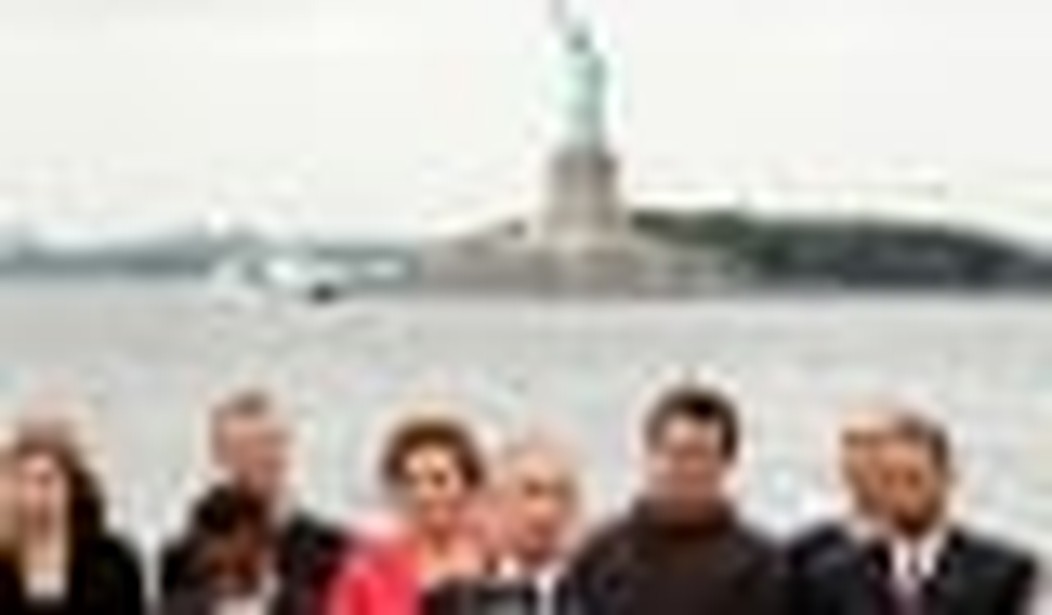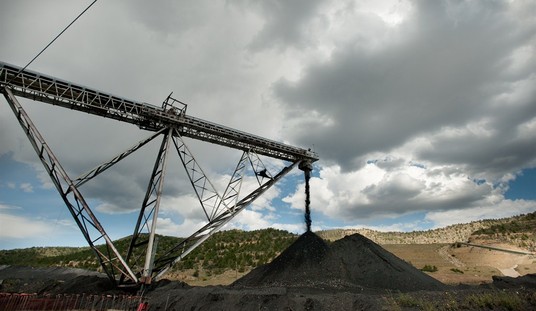Yesterday, a New York City panel paved the way for the building of the controversial “9/11 mosque” near Ground Zero. While vexing to many, there is one unintended consequence to this entire affair that deserves noting: like the 9/11 strikes a decade earlier, the controversy surrounding the 9/11 mosque has also been creating a stir, been making people think and talk — about Islam.
Consider: Before the Islamist strikes of 9/11, mainstream America was incognizant of the threat posed by radical Islam. Islamic apologetics and anti-U.S. polemics were unquestioned orthodoxy, not only in their natural habitat — academia — but more generally. After 9/11, however, the veil was partially lifted: a flood of books dealing with Islam, political Islam, jihad, sharia, “dhimmitude,” and any number of related topics appeared; politically incorrect books on Islam became bestsellers. The media began at least to acknowledge the existence of radical Islam; biased and politicized academics were exposed and refuted.
In other words, one unintended consequence of 9/11 was to make more Americans take note of Islam — which led to greater scrutiny of its formerly esoteric epistemology. After 9/11, it was no longer a few aging Orientalists who knew, for instance, that military jihad is obligatory in Islam, or that enmity for the infidel is standard, or that women and dhimmis are subjugated. The layman — the heart of democracy — began to be aware.
Thus, the 9/11 strikes were counterproductive to the Islamist cause. All Islamists, of course, desire what jihadist groups like al-Qaeda desire — the reestablishment of a global caliphate and enforcement of sharia law. But unlike al-Qaeda, most mature Islamists know that the time is not ripe for all-out violence, which only exposes their activities to greater scrutiny. In fact, Islamists have long found it more expedient to “destroy Western civilization from within,” necessitating projects such as the Middle East Forum’s Islamist Watch, which monitors and exposes subversive, nonviolent Islamist machinations on U.S. soil.
It is, however, ironic to note that, if an unintended consequence of 9/11 was to expose Islam to scrutiny, one decade later, the unintended consequence of the 9/11 mosque is the same. Since it became known, the mosque project has been reported by all mainstream media, including CBS, CNN, Examiner.com, Fox News, Al Jazeera, the NY Daily News, the New York Times, Reuters, the Wall Street Journal, the Washington Post, and the Washington Times.
Prominent political personalities, such as former House Speaker Newt Gingrich and 2008 Republican vice presidential candidate Sarah Palin, have also publicized the matter — the former arguing that the mosque project is part of “an Islamist cultural-political offensive designed to undermine and destroy our civilization,” the latter calling it an “unnecessary provocation; it stabs hearts.” The National Republican Trust produced an ad saying the 9/11 mosque constitutes “an invitation for more” strikes like 9/11. Most recently, the Anti-Defamation League asserted that “the building of an Islamic Center at this location [near Ground Zero] is counterproductive to the healing process.”
The inevitable result of all this media attention is precisely what Islamists seek to avoid — unwanted attention — as Americans, once again, take notice, think, and talk about dormant issues.
And while the main issue at stake (whether or not the 9/11 mosque should be built) has little to do with exposing Muslim doctrines or Islamist ideologies per se, consider: the more the controversy is discussed in the media, the more those unfamiliar with the larger issues begin to wonder what all the ruckus is about. A stray word lingers in the mind — perhaps “jihad” or “sharia” or “political Islam.” People begin to investigate some more, and learn some more; some become better informed of the Islamist threat, which they go on to discuss with friends and family. A cycle begins.
In short, it took jihadist violence on 9/11 to alert Americans to the threat of radical Islam. Many Islamists learned their lesson and joined their less conspicuous brethren working beneath the radar, via subversive means. The lesson of the 9/11 mosque, however, is that, so long as Islamists rock the boat and bring attention to themselves — even through nonviolent means — so long will they risk exposing themselves.
And if the 9/11 mosque is actually built, based on the amount of controversy it has already generated, there is reason to believe that it will be a permanent source of attention, provocation, and scrutiny — that is, a permanent source of exposure for the Islamist movement.
Finally, it should be observed that, while the stir being caused by the 9/11 mosque is nowhere near as far-reaching or consequential as that caused by the 9/11 strikes, it is proportionate: for just as subversive Islamists work bit by bit, so too does every bit of unwanted attention work against them.










Join the conversation as a VIP Member